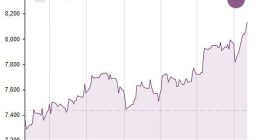
Products featured in this article are independently selected by This is Money’s specialist journalists. If you open an account using links which have an asterisk, This is Money will earn an affiliate commission. We do not allow this to affect our editorial independence.
Savers often face a stark choice between locking their money away for a year or two to get a high rate, or leaving it in an account where it is instantly accessible but earns a lower rate.
However, there is a type of account that can offer a good compromise between the two.
Notice accounts allow you to withdraw your money if you need to so long as you warn your bank in advance.
Typically, you need to give between 30 and 120 days’ notice.


Advance warning: Notice accounts allow you to withdraw your money if you need to so long as you warn your bank in advance. Typically, you need to give between 30 and 120 days’ notice
In exchange for committing to give your bank notice of withdrawals, you tend to be rewarded with a higher rate than offered in easy access accounts.
Notice accounts currently offer interest rates of 3.28 per cent on average compared to 2.27 per cent on easy-access accounts, according to data from rates scrutineer Moneyfactscompare.
But the best deals are considerably more generous. QIB UK’s market leading 95-day notice account pays 4.75 per cent. A saver with £10,000 in this account would earn £475 in interest in one year.
By comparison, a saver with £10,000 in the best easy-access account, which pays 3.91 per cent, would earn £391.
The QIB UK deal is available via the savings platform Raisin UK*, which acts as a marketplace, enabling savers to manage multiple accounts in one app and online account.
The account must be opened online with a minimum of £1,000. Saver deposits are protected up to £85,000 per individual under the Financial Services Compensation Scheme.
Rates on notice accounts tend to be variable, which means that the provider can increase or decrease them without notice. Therefore, they tend to be a better option if you think that interest rates will continue to rise.
Think carefully before locking into a notice account. If you need access to your cash — if your car or boiler breaks down, for example — you won’t want to wait 90 days.
As a compromise, you could divide your rainy day cash between an easy-access and a notice account.
The money held in an easy-access account will act as the emergency fund, ready for any unforeseen events; the cash held in the notice account could be for more foreseeable events, such as a wedding or a holiday.
Anna Bowes, co-founder of savings website Savings Champion, says: ‘Notice accounts are often overlooked possibly because no High Street banks currently offer any.
‘For some people, not being able to access their cash immediately is important to stop them dipping into their savings, so notice accounts can form a valuable part of a balanced savings portfolio.
‘If you ensure that you have rainy day funds in easy-access accounts and longer-term money held in fixed-rate bonds, notice accounts can be a good way of squeezing as much interest as possible on the funds that you don’t need immediately, but don’t want to tie up for longer periods.’
James Blower, founder of savings website The Savings Guru, agrees. He says: ‘Notice accounts are great for savers who don’t need access to their funds in the short term but who don’t want to lock away for a fixed period of time.
‘Ideally, I’d always recommend keeping access to up to three months’ worth of costs in an easy-access savings account. Beyond that, notice accounts are a great shout.’
Another option to consider is a short-term fixed rate account that locks your savings away for just three or nine months.
Unlike most notice accounts you are often unable to add deposits to a fixed-rate savings account once it is open.
And, as with all fixed-rate accounts, at the end of the term you will have to search for a new deal. But they offer generous rates and more flexibility than one, two or five-year fixed rate deals.
For example, Atom Bank is offering a six-month fixed-rate deal paying 4.8 pc. A deposit of £10,000 in this account would earn £240 by Christmas.
– Check out the best fixed rate savings deals here.








